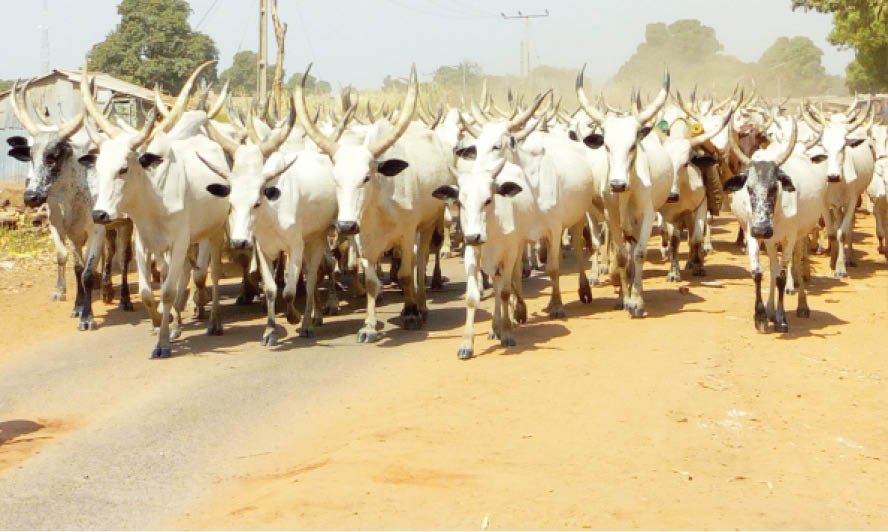The recent eviction notice served on unregistered Fulani herdsmen in Ondo State by the state government, due to the inestimable damage done to farmlands by their livestock coupled with perceived security considerations, has evoked the burning issue of cattle ranching in Nigeria. At this trying period of our national existence we should thread with circumspection and never allow sentiments to becloud our sense of reason.
Cattle ranching, popularly known as RUGA settlement, had been in existence during the first republic. It has been in existence in Nigeria during the regional governments of the 1950s. The Obudu cattle ranch, developed by colonial masters in Cross River State in 1951 and later taken over by the defunct South Eastern regional government, formed part of the country’s forest reserve. In the 1970s, late Chief Obafemi Awolowo, premier of defunct Western Region, created ranches across the states of the former Western Region. The ranches were originally managed by the Western Livestock Company and were later taken over by Odu’a Farms Cattle Ranch. Fashola stock farm in Oyo State was very prominent and was equipped with cattle breeding and multiplication facilities. The progenies of these specially bred cattle were further distributed to other ranches (Imeko, Akunnu, Odeda cattle ranch etc.) within the Western region for commercial cattle production. In Northern Nigeria, African Ranches, a subsidiary of United Africa Company (UAC) started as a private cattle ranching enterprise in western Borno province from 1914 until 1923 when it was taken over by government.
- Residents flee Zaria neighbourhoods over kidnappers’ rampage
- Bandits kill 21, abduct 40 in fresh Niger attack
RUGA was again introduced by the PDP-led government of former President Goodluck Ebele Jonathan who is the life patron of the Fulani socio-cultural association, Miyetti Allah Kautal Hore. It was designed to address frequent herders and farmers clashes and create new jobs. The National Economic Council, under former President Jonathan, also approved the release of N100 billion in 2014 for states as seed funding to build mini ranches nationwide in order to curb frequent herders and farmers clashes. This was sequel to the recommendations of the inter-ministerial committee set up by the Federal Government on Grazing Reserves headed by former Benue State Governor, Sen. Gabriel Suswan.
The committee found that grazing reserves and cattle routes already gazetted had been encroached upon and recommended that such routes be recovered and improved upon in view of prevailing realities. Buhari was not in the saddle and the Fulani did not force Jonathan to release the fund.
Since government is a continuum, all the 36 state governments and the FCT must deploy the money budgeted for RUGA settlement which was duly paid to them to acquire land for the construction of farm settlements. Let us not give in to sentiments that will only serve the inveterate enemies of the country to make Nigeria ungovernable for purely egocentric goals. The avoidable 1966 civil war was inflamed by unfounded rumours of corruption among top government officials. The country lost the finest politicians who came to serve with a deep sense of patriotism because the elite refused to speak out to forestall breakdown of law and order. We must exercise tolerance and goodwill towards Nigerians of other ethnic nationalities domiciled in our communities.
Due to desertification in the North water-holds that sustained livestock have dried up and our Fulani brothers and sisters have come to us for accommodation and succour. The much desired national integration and cohesion will be deepened when we exhibit true sense of patriotism to absorb other Nigerians who come to live with us the same way they accommodate us in their states. Nigerians of all climes must be united in condemning unfounded assertions in some national dailies credited to some uninformed Fulani leaders that they own all lands in Nigeria as this can only deepen the crisis.
Bishop Udo Azogu is the President of OMPALAN

 Join Daily Trust WhatsApp Community For Quick Access To News and Happenings Around You.
Join Daily Trust WhatsApp Community For Quick Access To News and Happenings Around You.


